
When you’re behind the wheel, you expect your car to operate smoothly, reliably, and efficiently. But if you’re noticing irregularities—hesitations in gear shifts, unusual noises, or even a delay when you accelerate—it might be time to pay close attention to your transmission. We’re here to help you understand what could be causing these issues and how you can take charge of your vehicle’s health. In West Jordan, Utah, we know that your car is more than just a machine—it’s your trusted companion on every journey, and keeping it in top shape is our priority.
What Are Transmission Problems?
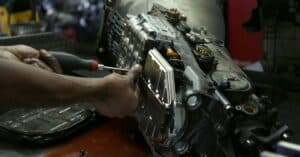
Your transmission is one of the most critical components of your vehicle, responsible for converting the engine’s power into the motion that drives you forward. Over time, like any complex system, it can develop issues that affect your car’s performance. Transmission problems can range from minor hiccups to major malfunctions. When you experience these problems, you might notice that your car isn’t shifting gears as it should, or it may even struggle to move at all.
Understanding the common transmission issues can empower you to take action before a minor inconvenience turns into a major repair job.
Common Transmission Problems You Might Encounter
- Slipping Gears:When your car unexpectedly shifts out of gear or the transmission seems to “slip,” it can feel like a sudden jolt or a loss of power. This is one of the most common symptoms of transmission problems.
- Delayed Engagement:If you experience a lag between shifting gears and the car’s response, it might be an early sign of transmission trouble. This delay can affect your car’s performance, especially during acceleration.
- Unusual Noises:Humming, clunking, or whining sounds during gear shifts are red flags that your transmission might need attention. These noises often indicate that internal components are wearing out or are misaligned.
- Harsh or Erratic Shifting:When the transition between gears feels rough or erratic, it can be a signal that your transmission repair is overdue. Smooth gear transitions are key to a comfortable ride.
- Fluid Leaks:Transmission fluid is essential for keeping your system lubricated and operating efficiently. Any signs of fluid leakage should prompt you to check your transmission, as low fluid levels can lead to severe damage.
Understanding these symptoms and recognizing them early can save you from unexpected breakdowns and costly repairs.
Why Do Transmission Problems Occur?
Transmission problems don’t just appear out of nowhere. There are several factors that contribute to these issues, and being aware of them can help you make informed decisions about your vehicle’s maintenance.
Key Factors Contributing to Transmission Problems
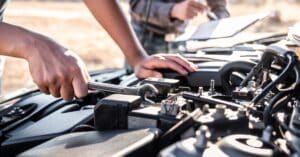
- Lack of Regular Maintenance:Just like any other part of your car, your transmission needs regular attention. Without routine transmission repair and maintenance, small issues can escalate into major problems.
- Incorrect Transmission Fluid Levels:Your transmission fluid plays a critical role in reducing friction and preventing overheating. Running low on fluid or using the wrong type can cause significant damage over time.
- Aggressive Driving Habits:Shifting gears abruptly or driving aggressively puts extra strain on your transmission. Over time, these habits can wear out your gears and other internal components.
- Overloading Your Vehicle:Towing or carrying loads that exceed your vehicle’s capacity can strain your transmission. It’s important to adhere to your car’s recommended limits to avoid unnecessary stress on the system.
- Wear and Tear:Even with proper care, normal wear and tear can lead to gradual degradation of your transmission. Over time, the internal components can wear down, affecting performance.
- Manufacturing Defects:In some cases, your transmission might have underlying issues due to manufacturing defects that become apparent with time. While these are less common, they can lead to early transmission problems if not addressed promptly.
By understanding these factors, you can take proactive steps to maintain your transmission and extend its lifespan.
Recognizing the Signs: When to Act on Transmission Problems
You might wonder, “How do I know if my transmission is really in trouble?” The key lies in recognizing the early warning signs. We’ve outlined some of the most common symptoms below, so you know exactly what to look out for.
Key Warning Signs
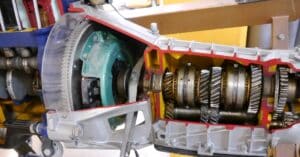
🚗 Delayed or Sluggish Response:If your car takes longer than usual to shift into gear or responds sluggishly when you accelerate, it might be a sign that your transmission needs attention.
🚗 Unusual Noises During Shifting:Whether it’s a clunk, a whine, or a humming noise, any sound that feels out of the ordinary is a cue that something isn’t right.
🚗 Erratic or Harsh Shifting:Smooth gear changes are essential for a comfortable ride. If you notice harsh or jerky transitions between gears, it might be time to look into transmission repair.
🚗 Fluid Leaks:Transmission fluid is vital for keeping your system running smoothly. If you spot any leaks, it’s important to get your transmission checked before the fluid levels drop too low.
🚗 Overheating:If your vehicle’s transmission is overheating, it’s a serious warning sign that requires immediate attention. Overheating can lead to significant damage if not addressed promptly.
Taking action at the first sign of trouble can help you avoid more extensive repairs down the line.
The Importance of Timely Transmission Repair
When it comes to transmission problems, timing is everything. Addressing issues early not only saves you money but also prevents further damage to your vehicle. We are committed to ensuring that you have the knowledge and resources you need to keep your car running smoothly.
Benefits of Timely Transmission Repair
- Enhanced Vehicle Performance:By tackling issues before they escalate, you can enjoy smoother gear shifts, improved acceleration, and better overall performance.
- Cost Savings:Early intervention often means less expensive repairs. Preventative maintenance can save you from the high costs associated with major transmission failures.
- Safety:A well-functioning transmission is crucial for safe driving. When you repair your transmission promptly, you reduce the risk of unexpected breakdowns or accidents on the road.
- Extended Vehicle Lifespan:Regular maintenance and timely repairs can significantly extend the life of your transmission—and your car overall.
If you’re experiencing any of the signs mentioned, don’t wait. We encourage you to schedule a comprehensive transmission repair check to ensure that your vehicle remains in optimal condition.
How We Can Help You: Expert Transmission Repair in West Jordan, Utah
At Ace Auto Repair, we understand that your car is an essential part of your life. We are dedicated to providing you with expert transmission repair and maintenance services that not only address current issues but also help prevent future problems. Our experienced technicians are here to guide you every step of the way, ensuring that your vehicle receives the care it deserves.
What You Can Expect from Our Transmission Repair Services

- Thorough Diagnostics:We use state-of-the-art diagnostic tools to accurately assess the condition of your transmission. Our comprehensive inspections ensure that no issue is overlooked.
- Expert Repairs:With our deep understanding of transmission systems, we can quickly and efficiently resolve any problems you might be facing. Our team is well-versed in both minor repairs and major overhauls.
- Customized Solutions:Every vehicle is unique, and we tailor our services to meet your specific needs. Whether it’s a simple fluid change or a complete transmission overhaul, we provide personalized care that works for you.
- Transparency and Communication:We believe in keeping you informed throughout the repair process. You deserve to know exactly what is happening with your vehicle and why certain repairs are necessary.
- Commitment to Quality:Our goal is to deliver long-lasting solutions that restore your transmission’s performance and reliability. We back our work with a commitment to quality and customer satisfaction.
We are proud to serve the West Jordan, Utah community, and we are here to ensure that your transmission issues are handled with the utmost care and professionalism. Your safety and satisfaction are our top priorities, and we will work tirelessly to keep your vehicle running at its best.
Tips for Maintaining a Healthy Transmission
Taking care of your transmission doesn’t end with a repair. Ongoing maintenance is essential to ensure that your vehicle continues to perform optimally. Here are some practical tips that you can incorporate into your routine:
Preventative Maintenance Tips
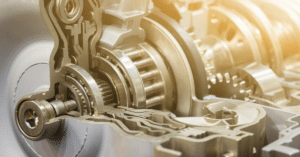
🚗 Check Your Transmission Fluid Regularly:Your transmission fluid is its lifeblood. Ensure you check the fluid level periodically and top it off if necessary. Always use the recommended type of fluid for your vehicle.
🚗 Follow the Manufacturer’s Maintenance Schedule:Adhering to your car’s recommended maintenance schedule is one of the best ways to prevent transmission problems. Regular check-ups can help detect issues before they become major concerns.
🚗 Avoid Aggressive Driving:Smooth and gentle driving not only saves your transmission from unnecessary stress but also enhances fuel efficiency and overall vehicle performance.
🚗 Keep an Eye on Warning Signs:Stay vigilant about any changes in your car’s performance. If you notice any signs of transmission issues, such as unusual noises or delayed engagement, get them checked as soon as possible.
🚗 Be Mindful of Towing Limits:If your vehicle is used for towing, ensure that you are within the manufacturer’s recommended limits. Overloading your vehicle can put extra strain on your transmission.
🚗 Schedule Regular Inspections:Even if your car seems to be running well, periodic inspections can help catch hidden issues early. A proactive approach to transmission maintenance can save you from unexpected breakdowns.
By incorporating these tips into your routine, you not only safeguard your transmission but also enhance your vehicle's overall reliability and performance.
The Advantages of Professional Transmission Repair
When you trust your transmission repair to professionals, you’re investing in the longevity and performance of your vehicle. We know that taking your car in for repairs can feel like a big decision, but let’s break down why professional help is the best choice for you.
Key Advantages
- Accurate Diagnostics:With specialized equipment and extensive experience, professionals can pinpoint the root cause of your transmission problems more accurately than DIY methods.
- Quality Parts and Labor:Professional shops use high-quality parts that are designed to last, ensuring that your repairs stand the test of time. This means fewer issues and more consistent performance.
- Time and Cost Efficiency:While it might seem tempting to delay repairs, addressing transmission issues early with expert help saves you time and money. You avoid the compounded costs of minor issues turning into major repairs.
- Peace of Mind:Knowing that your vehicle is in the hands of skilled technicians gives you confidence on every drive. We believe that you deserve the best care, and our professional transmission repair services are designed to give you that peace of mind.
Get Your Transmission Checked Today
You deserve a vehicle that runs smoothly and efficiently every time you hit the road. Don’t let transmission problems disrupt your journey or compromise your safety. If you’re noticing any of the warning signs or just want to be proactive about your car’s maintenance, we encourage you to take action today.
Call 801-803-6016 to schedule your comprehensive transmission check. We will work with you to diagnose any issues and provide the expert transmission repair you need to keep your car performing at its best in West Jordan, Utah.
Your Car, Your Journey
Your car is more than just a mode of transportation—it’s an essential part of your daily life. We know that when transmission problems arise, they can impact your overall driving experience and peace of mind. By staying informed, maintaining regular check-ups, and addressing issues promptly, you can ensure that your vehicle remains a reliable partner on every journey.
At Ace Auto Repair, we are dedicated to providing you with top-quality transmission repair and maintenance services in West Jordan, Utah. Your safety, comfort, and satisfaction are our highest priorities. We understand your concerns and are here to help you overcome any transmission issues with confidence and care.
Remember, every drive is an opportunity to enjoy the open road. Take control of your vehicle’s health, and let us help you keep your journey smooth and worry-free. Call 801-803-6016 today and experience the difference that expert transmission repair can make in your life. We are here for you every step of the way, ensuring that your car remains as reliable and efficient as you need it to be.
Together, we will keep your car running at its peak—so you can focus on the adventures ahead.
Download PDF

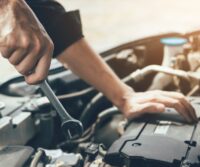


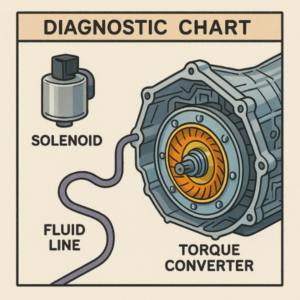










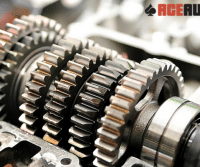
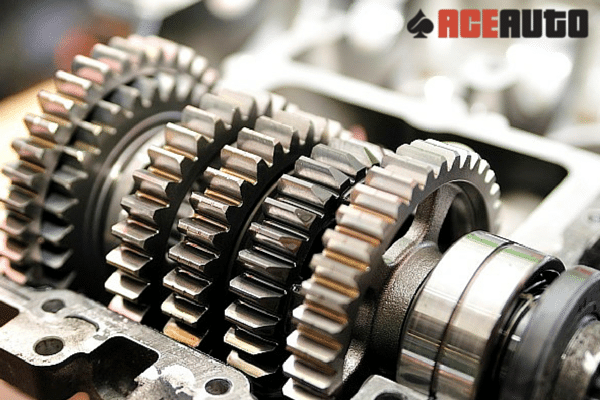

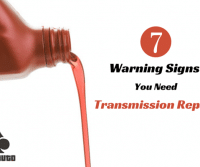
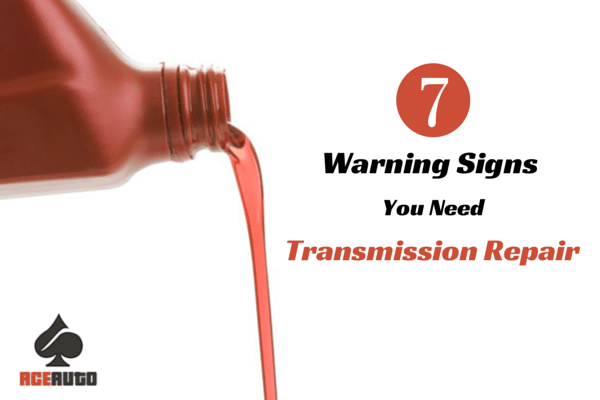



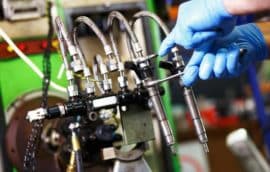
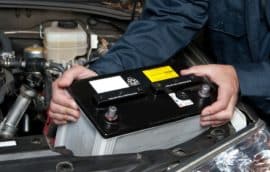

 Ace Auto Repair
Ace Auto Repair
Recent Comments